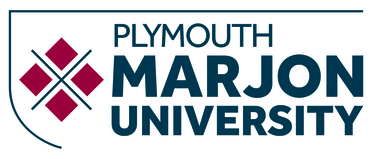Golden Thread or Gilded Cage? An analysis of Department for Education support for the continuing professional development of teachers
Vare, Paul, Oberholzer, Lizana, Ahmad, Mohammad Shamim, Durham, Hannah, James, Jon, Lee, Hilary, Linse, Caroline, Lofthouse, Rachel, McGrath, Sarah, Meehan, Una, Ovenden-Hope, Tanya, Price, Louise, Rolph, Chris, Chappell, Lynn Sampson, Seymour, Marnie, Smith, Rebecca, Sturrock, Soo and Watson, Karen (2022) Golden Thread or Gilded Cage? An analysis of Department for Education support for the continuing professional development of teachers. [Report]
|
Text
Golden Thread or Gilded Cage An analysis of Department for Education support for the continuing professional development of teachers.pdf - Published Version Available under License Creative Commons Attribution Non-commercial. Download (125kB) | Preview |
Abstract
Executive Summary This report was developed over a ten-month period building on extensive consultation with over 50 professionals directly involved with CPD provision for teachers in England. The report seeks to highlight the strengths, weaknesses and unforeseen impacts of the Early Career Framework(ECF) and National Professional Qualifications (NPQs), one year into the national roll-out of the ECF. Particular strengths of the ECF include: - Provision of a coherent programme of professional development over an extended period - Recognition of the importance of mentoring and coaching in professional development - An emphasis on wellbeing particularly in relation to introducing strategies to manage workload - Different providers developing their own programmes based on the ECF has the potential to provide comparative learning opportunities across the sector. In addition to these benefits, the NPQs offer a range of different pathways that help to map out opportunities for alternative career stages. Concerns with the ECF and NPQ programmes are sub-divided into content and implementation. Concerns with content include: - A high level of repetition both between the initial Core Content Framework (CCF) and the ECF as well across the NPQs; this discourages learners and means content is missed - A lack of progression from CCF to ECF through to NPQs; statements are repeated rather than reinforced in any meaningful manner - A limited research base underpinning these programmes; alternative views that would serve to deepen teachers’ professional understanding are not presented - Generic content that cannot be contextualised; a limited range of case studies are used rather than drawing on practice in the teacher’s own setting - The place of Special Educational Needs and disability (SEND), particularly the ‘behaviourist’ approach taken to behaviour management which is counterproductive with many children - The absence of any reference to the climate crisis and ecological emergency which represent the context within which our economy is developing. Concerns with implementation include: - The need for mentors to ‘backfill’ the programme with contextualised learning due to the uniform content; this can add significantly to mentor workload - Providing mentors and support for their development places considerable strain on schools; this represents a huge risk to the programme - Mentoring costs are such that some schools avoid recruiting newly qualified teachers; this is exacerbated by diminishing pay differentials between recruits and experienced teachers - The ECF assumes a common starting point which is rarely the case; continuity from initial training to CPD is actually lost, despite the golden thread narrative - The sequencing of material needs to be more flexible to reflect the experiences and concerns of early career teachers - There is a misalignment between Ofsted requirements, the Teacher Standards and the ECF and NPQ frameworks; this needs to be addressed - ECF and NPQ facilitator training is prescriptive and often led by non-experts; this hampers the development of professionals in this role - The critical role of the induction tutor within schools is underplayed or absent, yet this role is key to supporting early career teachers. The ECF and NPQs represent a significant investment in teacher professional development; we hope that this paper will contribute to ensuring that this investment is effective in challenging and inspiring teachers in order to retain them in the long run. There are welcome signs that feedback from schools on the ECF programme is being listened to and there is an opportunity here to respond further to feedback in order to build a more effective model. Two survey-based reports on the ECF (IMS/BMG 2022; Ford et al 2022) highlight challenges faced in its implementation and the likely weak effect on teacher retention. This report provides details that can help to explain some of those survey results. It will be important to study the impact of the ECF and NPQs on the recruitment and retention of teachers and to ensure that the programme adapts to future feedback and the changing needs of the profession. We trust that our analysis will contribute to that process.
| Item Type: | Report |
|---|---|
| Depositing User: | Ms Raisa Burton |
| Date Deposited: | 19 Sep 2024 13:37 |
| Last Modified: | 19 Sep 2024 13:37 |
| URI: | https://marjon.repository.guildhe.ac.uk/id/eprint/17882 |
Actions (login required)
 |
Edit Item |

